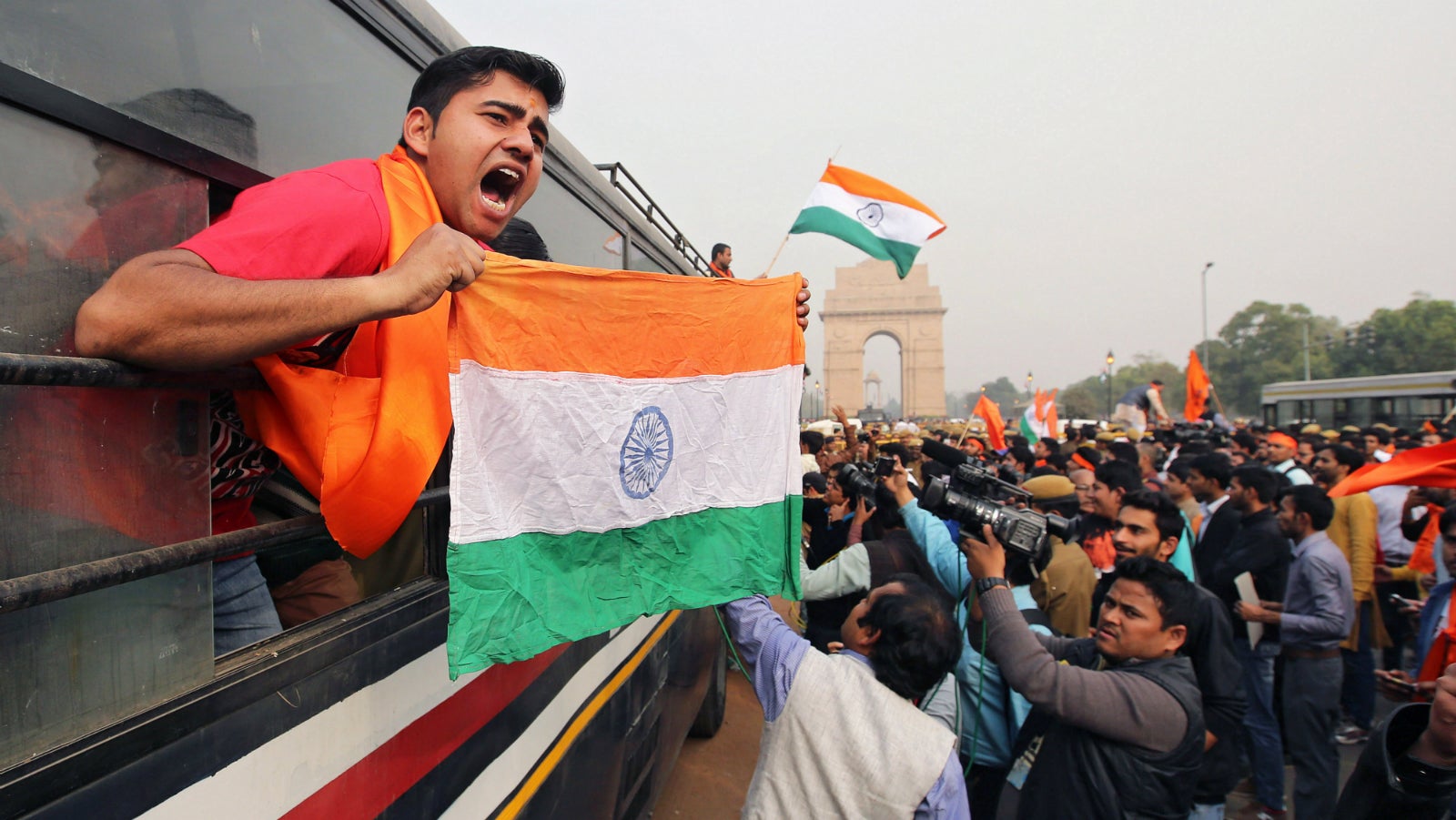JNU is doing exactly what president Pranab Mukherjee asked Indians to do: rebel and complain
To the uninitiated, Jawaharlal Nehru University (JNU) often appears to be “anti-national.” But that is because “nationalism” is not something social sciences and humanities are centrally concerned about.


To the uninitiated, Jawaharlal Nehru University (JNU) often appears to be “anti-national.” But that is because “nationalism” is not something social sciences and humanities are centrally concerned about.
Most scholars of such disciplines as history, sociology, political science, and languages agree and understand that nationalism is a relatively recent phenomenon in human history. It did not exist 300 years ago and, somewhere down the distant future, nations and, thereby, nationalisms as we know them, too will cease to exist.
For most historical, social, and political processes, the nation and its current territorial, cultural and social boundaries are inadequate and poor units of analysis. The nation is not the primary or even the preferred lens used to make sense of complex realities.
The nation then emerges as a “problem” that is to be interrogated, understood, and analysed. Not as an object of “worship.”
When students and teachers talk for and about the oppressed and the marginalised, or when they conduct their academic enquiries, the “nation” seldom figures large in their agenda, except as a powerful institutional entity, with which people have to negotiate, at times resist and at times critique. This also spills over into campus politics. Humanistic enquiry and campus politics bleed into one another. This is necessary, welcome, and something to be cherished.
To the “outsider”, such enquiries and arguments may appear provocative, disturbing, and confusing. But then this is the central task of those who are engaged in social sciences and humanities: to make people see things what they usually don’t, and to persuade them to question things they take to be natural, given, or granted.
At the cost of sounding self-aggrandising, academics and scholars in these pursuits serve as conscience keepers of the human society at large. Yet, they mostly work under deplorable conditions (live in JNU for a week and you will know), inadequate academic infrastructure (compare Indian libraries and labs with those elsewhere in the West or in East Asia), and are poorly paid.
What about JNU then?
Seen in this light, it is awkward to be forced to proclaim nationalist credentials. The terms of the debate in the wake of events in JNU since last week, has been set by the State and sections of the media, and JNU and its scholars have been forced to comply and speak in unison, which is something they seldom like to do.
Given that the views and opinions generated in humanities are generally at odds with state authorities and dominant views in the society, universities serve as sanctuaries where several ideas are incubated, born, debated, and modified. What this offers to the society is new ways of understanding and changing the world we live in.
Events at JNU must be seen in this context. The question at stake was not nationalism. It was opposition to capital punishment in principle and of the hanging of a man based on what the courts themselves admitted to be circumstantial evidence.
The question at hand was to draw attention to the fact that India has an atrocious human rights record in Kashmir and that ways must be found to change that situation. Opinion on how this change can be brought about differs widely.
In this context, last week, some students might have raised, what many consider to be disagreeable slogans. As it is evident, such views have no traction inside the campus or outside of it in India. Those espousing such views have been defeated politically within JNU time and time again.
Then why give this so much importance and blow it out of proportion?
It must be remembered that if what India does in Kashmir was a solution to its problems, Lance Naik Hanumanthappa and his nine colleagues would not have had to die in Siachen, and there would have been no need for AFSPA.
JNU is certainly no utopia. But try taking JNU with its democratic ethos and spirit, to Kashmir. That might be a solution. Instead, the government is hell bent on bringing Kashmir to JNU. The consequences will be disastrous to India and its constitutionally enshrined goals of securing for all its citizens, economic and social justice, liberty, equality and fraternity.
Many in JNU and elsewhere critique the Indian state, to make the state better and to hold it true to its own promises. Destroying it, as some people allege, is neither their concern, nor their desire, nor within their capacity.
The president of India, on the eve of Republic Day, urged its citizens to “continue to complain, to demand, to rebel.” JNU embodies that very spirit.
During the peak of Vietnam War, students in universities across the US raised the following slogan:
“Hey, Hey LBJ, how many kids did you kill today?” They followed that up with “Ho Ho Ho Chi Minh, NFL (a.k.a Vietcong) is going to win.”
That was not deemed seditious in the middle of a war. The Indian government and people must take note.
We welcome your comments at [email protected].